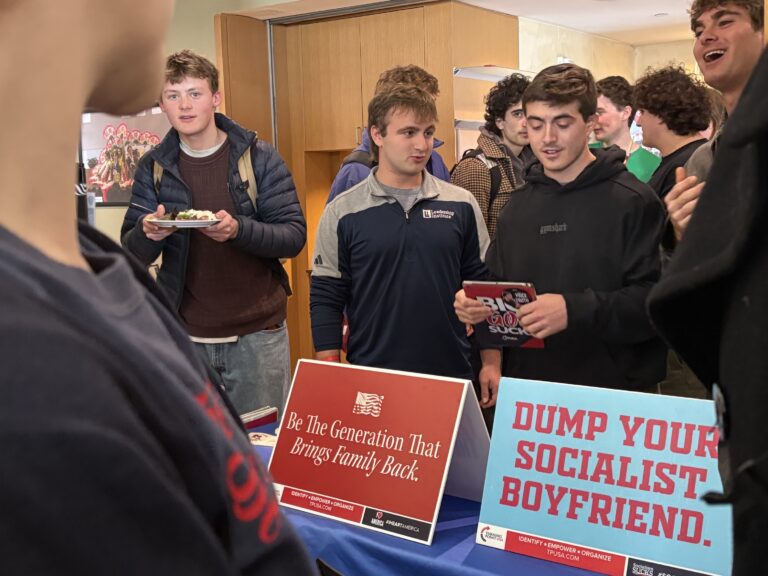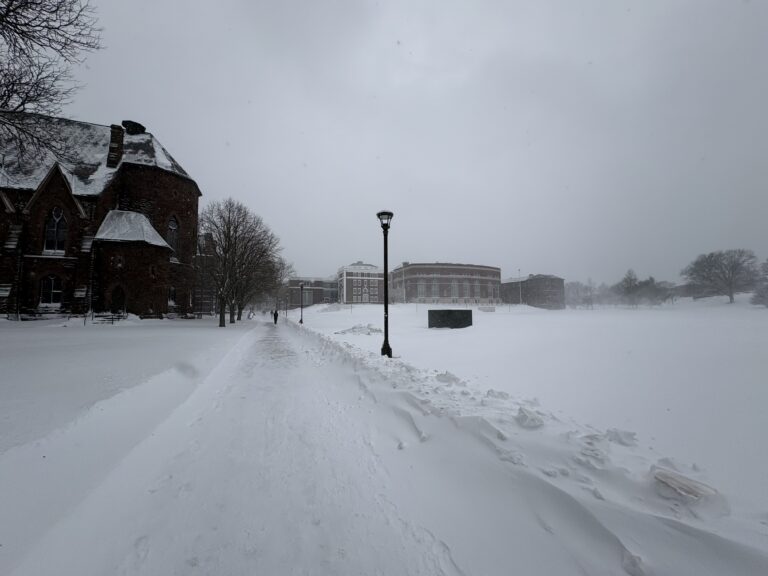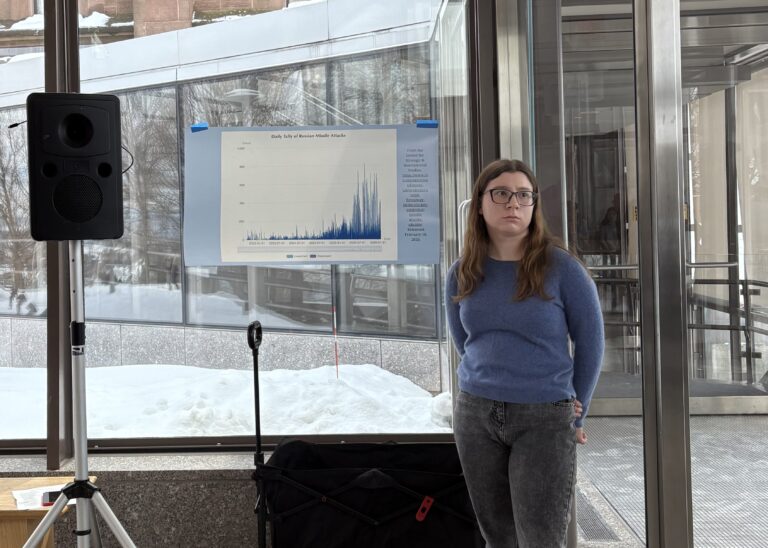NPR’s Doug Berman ’84 Speaks at Crowell
On Thursday, Nov. 1, Doug Berman ’84, the creator and producer of the hit National Public Radio (NPR) shows “Wait Wait…Don’t Tell Me!” and “Car Talk,” spoke with University students, faculty, and Middletown residents as part of the third installment of the WESU Lecture Series. Berman talked about his career and some of the aspects involved in producing radio shows. He then spent the remainder of the time fielding questions from the audience, which prompted him to share anecdotes and insights.
“Wait Wait…Don’t Tell Me!” (also known as “Wait Wait”) is a popular news-related quiz show involving satire of current events and audience participation. “Car Talk,” which was on the air for 35 years between 1977 and 2012, is a humor-based show in which Click and Clack, the Tappet Brothers (the alter egos of real-life brothers Tom and Ray Magliozzi) took calls from listeners about car problems. Though the show no longer is on the air, NPR still plays reruns.
Berman majored in American Studies at Wesleyan, and according to the introduction delivered by Student President of WESU Avery Trufelman ’13, had a keen interest in West African drumming. He also participated in WESU, which he credited with launching his career in radio programming.
Trufelman explained that Berman was a clear choice for the WESU Lecture Series.
“It was always a goal of mine to start up a series featuring a bunch of the Wesleyan alumni who have gone into broadcasting,” Trufelman said. “Doug Berman was an obvious choice because he was very involved in WESU and is arguably one of the biggest heavy-hitters in radio…I thought a speaker series would be a great excuse to meet him (along with Ilya Marritz and Lynn Levy, the other guests this season), but I also wanted these guests to attest to WESU’s potential as an educational (and vocational) resource.”
One student in the audience noted that Republican presidential candidate Mitt Romney has threatened to eliminate government funding for public radio programs like NPR, and he asked Berman how he thought “Wait Wait” and “Car Talk” might be affected if government funding were indeed removed.
“It’s an interesting question,” Berman responded. “The future of programming like “Wait Wait” and “Car Talk” is probably fine because
those shows are actually really well listened to, and they can survive in an economic model without government funding. The shows that probably are in more danger are the ones that have smaller listenerships and more of a mission orientation.”
Another person asked Berman how the Internet had influenced the show. Berman explained that his radio shows were among the first to use the Internet, not only as source material but also as a way to broadcast.
“[The Internet] changed things on the periphery for us; it didn’t change the heart of the show,” Berman said.
Berman also commented on Hurricane Sandys effects on “Wait Wait,” which spoofs news stories as part of its comedy routine.
“This week was hard for us, because the big story of the week is the hurricane,” Berman said. “There are some stories that are very easy for us, because they are just funny; they’re just about people being stupid. When we get stories that actually involve death and destruction, it’s much more hard to be funny about it—not that we stop trying… We don’t want to be obnoxious if unnecessary, but we do have to make fun of things.”
Many of the people in attendance were familiar with “Wait Wait…Don’t Tell Me!” and “Car Talk,” and several of their questions revolved around the shows themselves.
“How do you become a subway fugitive?” asked Earl Lin ’15, referencing a nickname for Berman that was mentioned on “Car Talk.”
Berman then launched into a story about a time when he was in a metro station in Washington, D.C. and was written up by a security guard for drinking a coffee in the station, an act that is prohibited. Just as he was about to receive the ticket, a man in a business suit walked by eating an apple, and as the guard rushed after the man, Berman slipped onto a train, thus becoming a subway fugitive.
Lin said that he enjoyed getting insider information about aspects of “Car Talk” and “Wait Wait.”
“As a lifelong NPR listener, it was really interesting to get a behind-the-scenes insight into how “Car Talk” and “Wait Wait”—shows which have been the soundtrack to the weekend for much of my life—got started, how they operate, and the personalities behind them,” Lin wrote in an email to The Argus. “I hadn’t realized how organic, ad hoc, and grassroots a process the genesis of such a popular radio show could be. It was also pretty great to learn there’s a story behind Doug ‘The Subway Fugitive’ Berman’s nickname—I had always assumed it was just something Tom and Ray had just made up.”
Trufelman said she was satisfied with Berman’s talk and expressed hope that WESU would host future event series.
“I think it’s important for Wesleyan and the Middletown community to recognize what WESU can offer, as a viable radio station open to all volunteers from all backgrounds and interests,” Trufelman said. “WESU will continue to promote its campus presence next semester, hopefully with a concert series. Our music directors managed to meet a lot of musicians during the CMJ festival in New York this year (for which we got free passes), and hopefully they can use those connections to bring some acts here.”







the talk was at CFA hall, just fyi